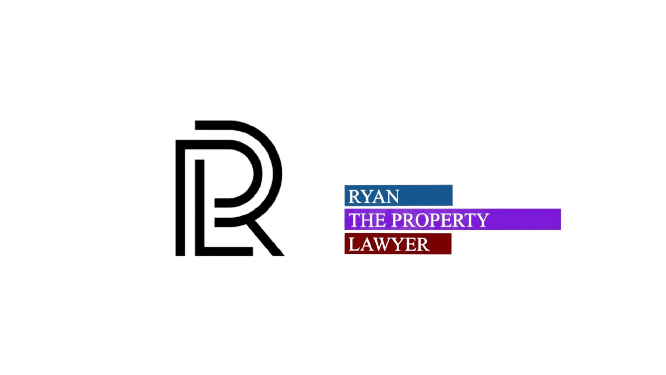Overview of the Foreclosure Process
A foreclosure threat can be a frightening event for homeowners. A lender may seek to reclaim ownership of a property through foreclosure if a borrower has fallen behind on their mortgage payments. It’s crucial for homeowners to realize that they have options and rights during the foreclosure process. The major elements of managing foreclosure processes, such as homeowners’ rights and various alternatives to foreclosure, will be covered in this blog article.
Understanding the Process of Foreclosure
To effectively navigate foreclosure proceedings, homeowners must have a clear understanding of the process itself. The essential foreclosure steps are as follows:
Notice and Default
When a homeowner falls behind on their mortgage payments, foreclosure frequently ensues. Informing the homeowner that they are behind on payments and giving them a certain window of time to make things right, the lender will send a notice of default. In order to give homeowners a chance to rectify the issue before foreclosure proceedings begin, this notice is required by law.
Reduced Loss and Pre-Foreclosure
Homeowners have the chance to discuss loss-mitigation options with their lender during the pre-foreclosure stage. Loss mitigation refers to methods and options, such as loan modifications, repayment schedules, or short sales, that can assist homeowners in avoiding foreclosure. Homeowners must actively communicate with their lender during this stage in order to discuss viable solutions and bargain for conditions that will allow them to keep their houses.
Sale or auction
The property may be slated for foreclosure auction or sale if the homeowner is unable to correct the default and come to an arrangement with the lender. Depending on the jurisdiction, the specifics of the auction procedure can vary, but it typically entails open bidding on the asset. If the property is not sold at auction, it can be taken over by a bank or put up for further sale.
Possession and eviction
In cases where the foreclosure process is complete and the homeowner has not been able to retain the property, the lender may proceed with eviction proceedings to take possession of the property. Many jurisdictions have different eviction rules and procedures, and homeowners may be given a set amount of time to leave the property.
Rights of Homeowners During Foreclosure Proceedings
While foreclosure proceedings can be overwhelming, homeowners have rights that can help protect their interests throughout the process. The following are some crucial rights to be aware of:
The right to remedy default
Homeowners have the right to cure the default by paying the outstanding amount owed to the lender, including missed mortgage payments, late fees, and any other costs incurred due to the default. This privilege usually lasts until a specific time during the foreclosure procedure, frequently just before the auction or sale.
Rights to Information and Notice
The law requires lenders to give borrowers notice of default and other crucial details about the foreclosure process. Homeowners have a right to timely and accurate information about the foreclosure process, including important dates, information about the auction, and possibilities for loss mitigation.
Ability to retain counsel
The right to legal counsel is available to homeowners during the foreclosure process. Hiring a knowledgeable foreclosure lawyer may ensure that homeowners’ rights are upheld and that they have a fair opportunity to investigate alternatives to foreclosure.
Possibility to contest the foreclosure
Homeowners may have the right to contest the foreclosure in some circumstances, such as where there are procedural flaws or legal infractions. Homeowners can identify any viable legal defenses and navigate the proper procedures to contest the foreclosure by working with a lawyer.
Options Rather Than Foreclosure
Although facing foreclosure can be difficult, there may be other options available to homeowners. One option is a loan modification, which can help homeowners renegotiate the terms of their mortgage to make it more affordable. Another option is a short sale, in which the homeowner, with the lender’s consent, sells the house for less than the mortgage balance. Both options may have an impact on credit scores, but they can be less damaging than a foreclosure.
Modification of the Loan
Loan modification is one option as opposed to foreclosure. To make the mortgage payments more manageable for the homeowner, this entails renegotiating the conditions of the loan with the lender. Reducing the interest rate, extending the loan’s term, or even lowering the principal balance are all examples of modifications. Homeowners should engage closely with their lender and present all required evidence to back up their request for a loan modification.
Payment Schedule
Another choice is a payback schedule, when the property owner consents to make extra payments over time to make up for missed mortgage payments. Once the arrears are entirely paid, the lender could permit the homeowner to make monthly payments over a longer period of time or include the delinquent amount in the regular mortgage payment. Homeowners must agree to adhere to the amended payment schedule in order to participate in repayment plans.
Brief Sale
A homeowner might decide to go after a short sale in some circumstances. This entails selling the home for less than the mortgage balance. The lender agrees to release the homeowner from additional responsibilities by accepting the sale proceeds as complete payment of the loan. It is crucial to keep in mind that short sales need the lender’s approval and could have an impact on the homeowner’s taxes.
In lieu of foreclosure, a deed
A voluntary transfer of ownership to the lender by the homeowner in order to pay off the mortgage obligation is known as a deed in lieu of foreclosure. When other options are unworkable or the homeowner wants to avoid the foreclosure process, this option may be taken into account. To ensure that they are entirely liberated from the mortgage debt and any prospective deficiency judgments, homeowners must bargain with the lender.
Getting Professional Help
Navigating foreclosure proceedings and exploring alternative options can be complex and overwhelming for homeowners. Seeking professional assistance can provide valuable support throughout the process. Here are some professionals homeowners can consult:
Mortgage lawyer
A foreclosure lawyer who focuses on these laws can assist homeowners with the legal facets of the procedure. They can examine the homeowner’s circumstances, determine whether certain options are viable, and act as the homeowner’s advocate during talks or legal processes.
Counselor for Housing, approved by HUD
Housing counselors with HUD approval are qualified experts who can offer no-cost or low-cost support to homeowners in foreclosure. They can aid homeowners in developing a strategy to prevent foreclosure, negotiating with lenders, and understanding their choices.
Mortgage broker or expert in loan modifications
Inquiring about loan modification alternatives, compiling the required paperwork, and dealing with the lender on behalf of homeowners are all tasks that a mortgage broker or loan modification specialist can help with. These experts can assist homeowners in making a strong case to the lender because they have knowledge of the loan modification procedure.
Conclusion
Although going through a foreclosure might be intimidating and frightening, homeowners do have rights and options to take into account. It is essential for homeowners to take charge, look for expert help, and research alternatives to foreclosure. The likelihood of coming up with a solution that lets homeowners keep their homes or lessens the financial effects of foreclosure can be increased by understanding the foreclosure process, being aware of their rights, and communicating with their lender.
Homeowners can handle the foreclosure process more confidently and work toward a successful resolution by being educated, asking for help when necessary, and actively participating in the process. Always keep in mind that every situation is different; therefore, it’s crucial to speak with legal and financial experts to decide the best course of action in each case.
Author Profile

Latest Blog
 Uncategorised22 December 2023What Constitutes a Legal Partnership in Ontario?
Uncategorised22 December 2023What Constitutes a Legal Partnership in Ontario? Uncategorised22 December 2023Characteristics of a Corporation in Ontario
Uncategorised22 December 2023Characteristics of a Corporation in Ontario Uncategorised22 December 2023Intentions Matter When Co-Owning Property
Uncategorised22 December 2023Intentions Matter When Co-Owning Property Uncategorised22 December 2023Consequences of Operating an Ontario Partnership
Uncategorised22 December 2023Consequences of Operating an Ontario Partnership




